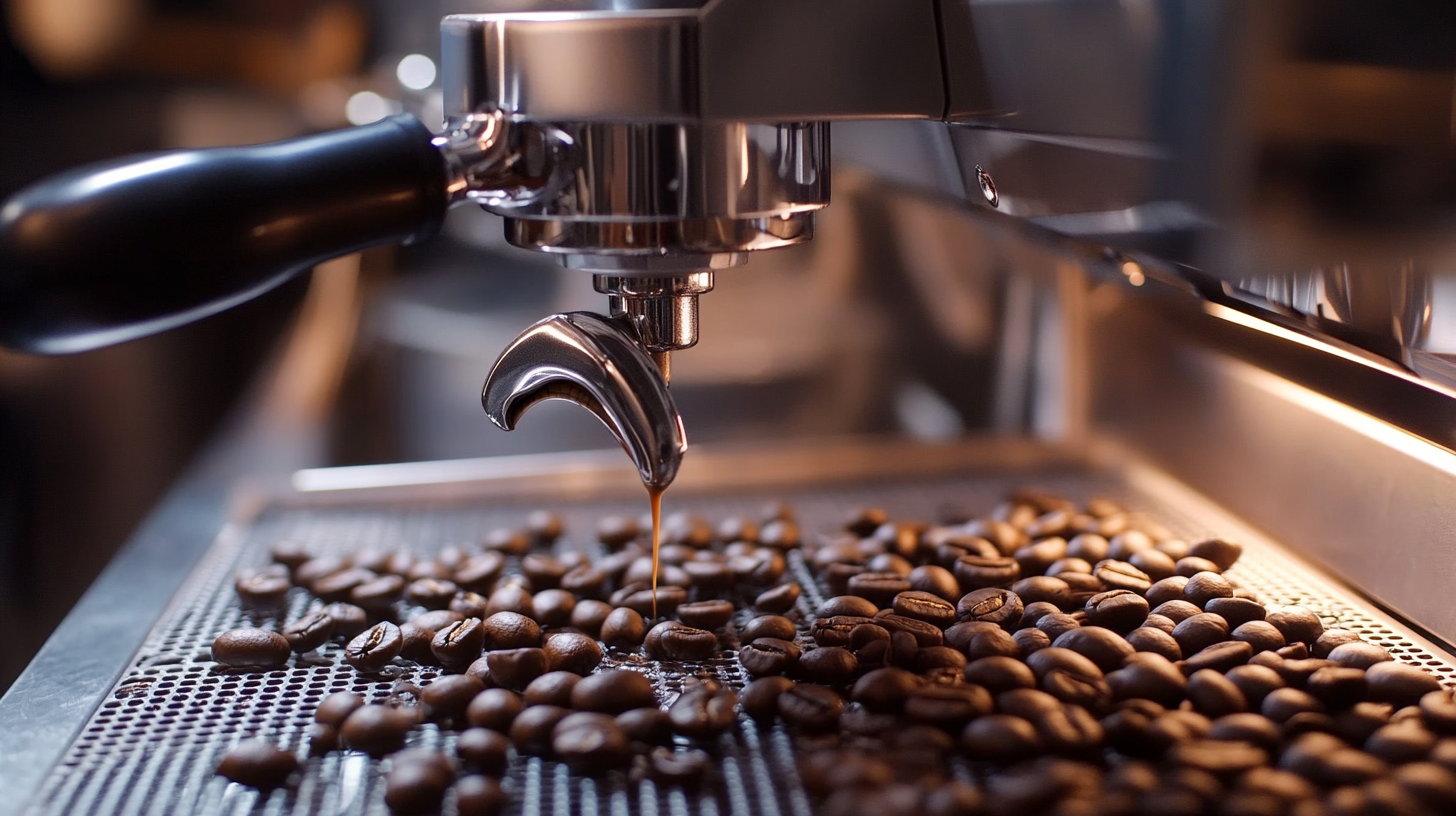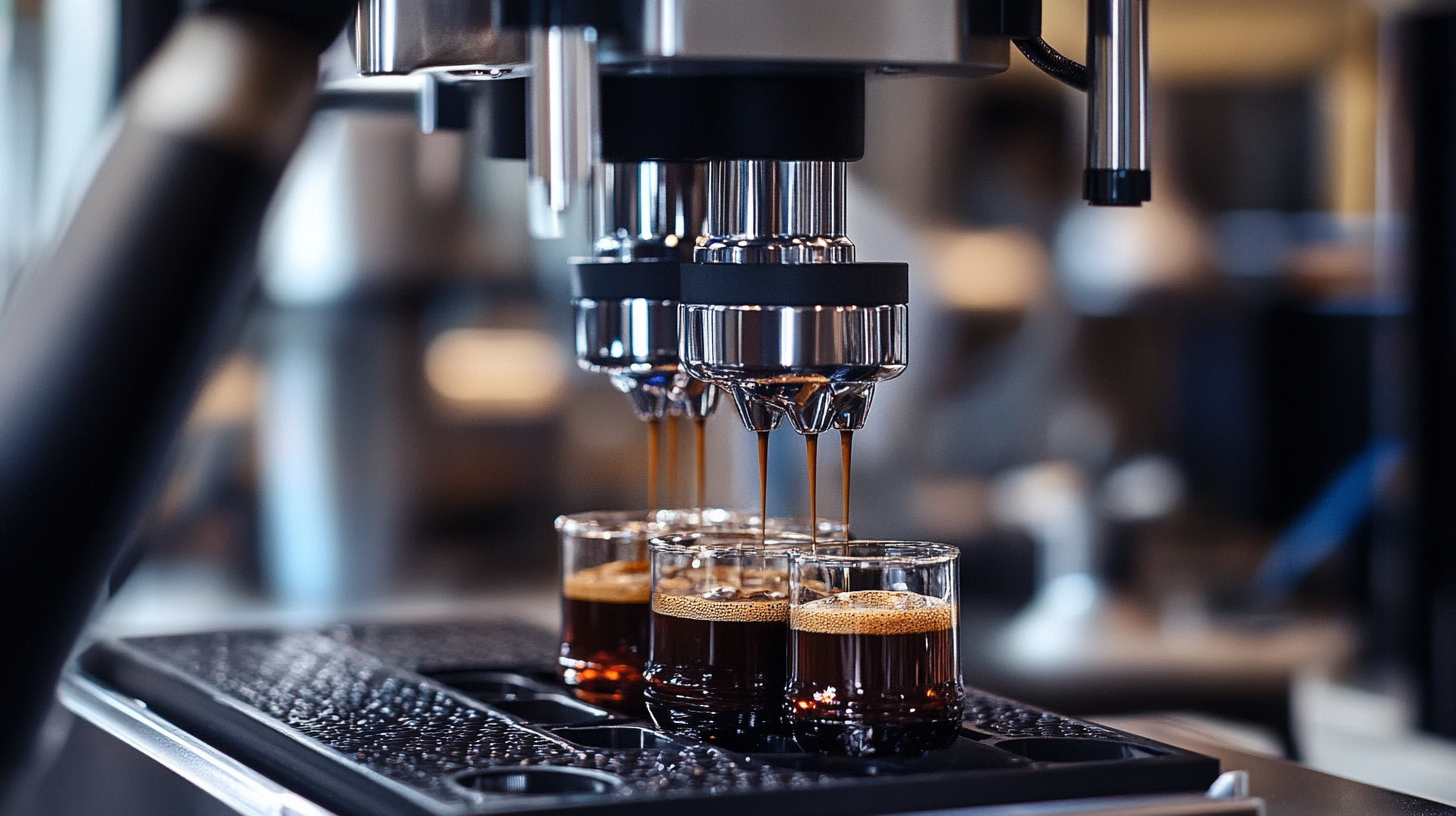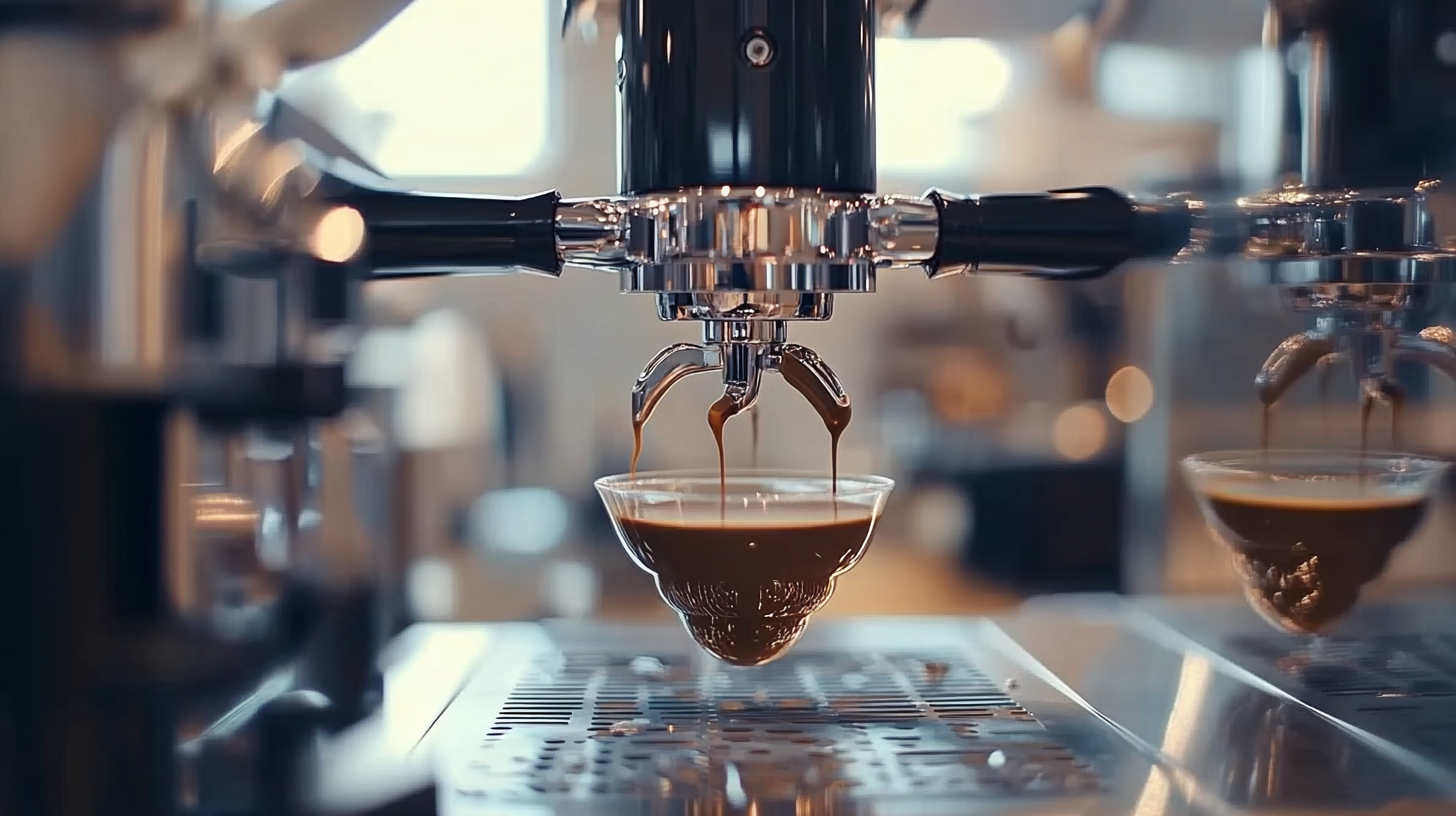Revolutionizing Coffee Production: The Next Generation of Coffee Robot Machines
The coffee industry is undergoing a profound transformation, driven by advancements in automation and technology. According to a report by Market Research Future, the global coffee machine market is projected to reach USD 10.2 billion by 2026, exhibiting a compound annual growth rate (CAGR) of 4.6%. Among the innovations emerging in this space, the Coffee Robot Machine stands out, poised to revolutionize production processes. With increasing demand for high-quality coffee and the labor shortages in agriculture, these automated systems are not just a luxury but a necessity for sustainable growth in the coffee sector.
Incorporating cutting-edge technologies, Coffee Robot Machines promise not only to enhance efficiency but also to improve the consistency of coffee products. The International Coffee Organization has reported that the global coffee consumption has surpassed 10 million tons, highlighting the critical need for scalability in production. By leveraging robotics, coffee producers can streamline operations, reduce waste, and ultimately offer a superior product to an ever-growing market of coffee lovers. As we explore the next generation of coffee production, it is clear that the Coffee Robot Machine will play a pivotal role in reshaping the landscape of this beloved industry.

The Rise of Coffee Robots: Key Innovations Reshaping the Industry
The coffee industry is undergoing a remarkable transformation fueled by advancements in robotics and automation. With the emergence of coffee robotics, a wave of innovative technologies is reshaping how we experience this beloved beverage. In cities like Shenzhen, coffee shops featuring robotic baristas are becoming the norm, offering consumers a high-tech experience where a simple tap on a screen can result in a freshly brewed cup of coffee—all without the need for human intervention. Leading this revolution is a pioneering coffee robot manufacturer, which has recently garnered significant investment funding for its focus on on-demand brewing solutions. These robots utilize intelligent robotic arms to streamline the coffee-making process, ensuring that each cup meets modern consumers' growing demands for quality and efficiency. The rise of such innovations reflects a broader trend of integrating technology into traditional practices, breathing new life into the age-old coffee culture. Notably, the first all-in-one coffee robot has been developed in Jiangsu, marking a significant milestone in the intersection of technology and coffee. This groundbreaking machine not only brews coffee but also offers intelligent delivery, showcasing how robotics can enhance consumer convenience. As coffee robots gain momentum globally, these advancements are setting the stage for a new era in coffee production, promising to deliver unique flavors and unparalleled service.

Automation in Coffee Farming: Enhancing Efficiency and Quality
The landscape of coffee farming is undergoing a dramatic transformation, driven by innovative automation technologies. By integrating advanced robotics into coffee production, farmers are not only enhancing efficiency but also significantly improving the quality of their harvests. These next-generation coffee robot machines are designed to perform a variety of tasks, from planting and watering to harvesting and processing, allowing farmers to focus on other vital aspects of their operations.
Automation in coffee farming addresses several challenges faced by growers, including labor shortages and the increasing demand for sustainable practices. Robotic machines can work tirelessly, minimizing the need for manual labor and ensuring that tasks are completed in a timely manner. This not only reduces operational costs but also helps to increase the productivity of coffee farms. With precision technology, these robots ensure optimal harvesting conditions, allowing for better selection of ripe coffee cherries, which ultimately enhances the quality of the beans.
Furthermore, the integration of automation brings data-driven decision-making to coffee farming. By utilizing sensors and AI, farmers can monitor soil health, weather patterns, and crop growth in real-time. This data helps in making informed choices that lead to better yield and quality. As the coffee industry continues to embrace these technological advancements, it stands to benefit from higher efficiency and improved product quality, paving the way for a more sustainable and profitable future.

Sustainability Meets Technology: Eco-Friendly Coffee Robotics
In the ever-evolving landscape of coffee production, the intersection of sustainability and technology is increasingly vital. The rise of eco-friendly coffee robotics marks a pivotal shift towards greener practices in the industry. These innovative machines not only enhance efficiency but also minimize environmental impact, making coffee cultivation more sustainable. By integrating advanced technologies, such as precision agriculture and automation, coffee robots can reduce waste and use resources more judiciously, ensuring a brighter future for coffee farming.
One of the key advantages of eco-friendly coffee robotics lies in their ability to optimize resource use. These machines are designed to intelligently assess soil health, moisture levels, and crop conditions, leading to tailored interventions that conserve water and reduce pesticide use. Sustainable practices not only support the health of the planet but also enhance the quality of coffee produced. Moreover, by implementing robotics in harvesting, the reliance on manual labor is decreased, which helps combat labor shortages while maintaining high productivity levels.
The adoption of these technologies is not just a trend; it reflects a commitment to responsible production. As consumers become more environmentally conscious, the demand for sustainably sourced coffee continues to rise. Coffee robotics, therefore, play a crucial role in meeting this demand while ensuring that the planet's resources are preserved for future generations. By marrying technology with eco-friendliness, the next generation of coffee robots is revolutionizing the way we think about coffee production, leading to a more sustainable and prosperous coffee industry.

Consumer Experience Transformed: Smart Machines in Coffee Shops
The consumer experience in coffee shops is undergoing a remarkable transformation, thanks to the advent of smart machines like robotic baristas. As coffee enthusiasts and casual drinkers seek convenience alongside quality, these innovative technologies cater to varied consumer segments by offering tailored coffee solutions. The rise of self-service kiosks empowers customers to personalize their orders, making the coffee experience not just about the beverage but also about user engagement and satisfaction.
The market for robotic coffee shops is poised for substantial growth, driven by advancing technology and changing consumer preferences. By 2032, it is projected that the demand for automated coffee machines will escalate, touching on aspects such as frequency of visits and loyalty programs. This shift reflects a larger trend where consumer-focused innovations redefine traditional coffee consumption, merging efficiency with the artistry of coffee-making. Companies like Xbot illustrate this philosophy through their commitment to not just any coffee, but exceptional coffee crafted by robots that master barista techniques, redefining quality in the process.
As we embrace this new era of coffee production, the intersection of technology and consumer demands will continue to evolve, painting a picture of a future where every cup of coffee can be a finely-tuned experience, blending both taste and convenience seamlessly.
Future Trends: Predicting the Next Advances in Coffee Robotics
The landscape of coffee production is on the brink of a significant transformation, driven by the rise of advanced robotics. As we look toward the future trends in coffee robotics, it's essential to anticipate not just the innovations that will revolutionize the industry but also the statistical growth that will accompany these changes. According to recent forecasts, the global coffee market is projected to experience a compound annual growth rate (CAGR) of 4.5% over the next five years, with automation playing a pivotal role in scaling production and enhancing efficiency.
In line with these advancements, various robotics initiatives are emerging worldwide, aimed at modernizing coffee cultivation and processing. For instance, the integration of service robots in production facilities has the potential to streamline operations, reduce labor costs, and enhance quality control. A recent showcase at a major trade fair featured a dedicated service robot zone, highlighting the rapid advancements in artificial intelligence and its applications in the food and beverage sector. This trend underscores the anticipation that machines will soon become indispensable partners in coffee production.
Furthermore, industry experts predict that by the end of this decade, the number of robots utilized in agricultural settings, including coffee production, could exceed human laborers in significant regions. This shift will not only redefine labor dynamics but also enhance production capabilities, enabling coffee producers to meet the growing global demand more efficiently. The adoption of these robotic systems signifies a breakthrough moment for the coffee industry, paving the way for enhanced sustainability and operational excellence.
